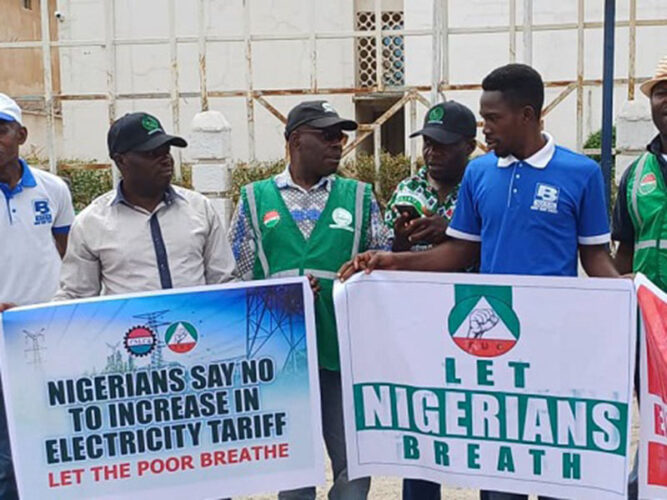The Nigeria Labour Congress (NLC) contends that the recent increase in electricity tariffs worsens inflation, stressing that the Nigerian Electricity Regulatory Commission (NERC) and distribution companies must promptly reverse the hike. NLC President Joe Ajaero emphasized in a Tuesday interview that tariff adjustments are influenced by inflation and currency value, a process overseen by NERC. However, he criticized the cycle of tariff increases leading to further inflation, calling for control over this trend.
On April 3, 2024, NERC raised tariffs for customers under the Band A classification, receiving 20 hours of daily power supply. These moves saw customers paying N225 per kilowatt-hour, up from N66, prompting widespread criticism given the prevailing economic challenges. In response to public outcry, NERC directed discos to reduce tariffs by 8.1% for Band A customers. Nevertheless, discontent persisted, leading to protests by the NLC and the Trade Union Congress (TUC) at NERC offices and distribution companies.
Ajaero denounced NERC's recent tariff adjustments as mere political gestures, asserting that reductions following tariff hikes are inadequate. He demanded a complete reversal of the tariff increase, urging NERC and discos to engage with labor unions and stakeholders to chart a mutually acceptable path forward.
Addressing broader concerns about the power sector, Ajaero questioned the efficacy of privatization, highlighting the absence of significant investment despite 12 years of privatization. He argued that the state should play a more active role in sectoral development to alleviate the burden on the populace.
Meanwhile, skyrocketing prices of food and essential commodities have exacerbated the economic crisis, with Nigeria's inflation rate soaring to 33.20% in March 2024. Organized labor insists that Nigerians cannot bear additional hardship amid soaring living costs, advocating for a substantial increase in the minimum wage to alleviate financial strain.









